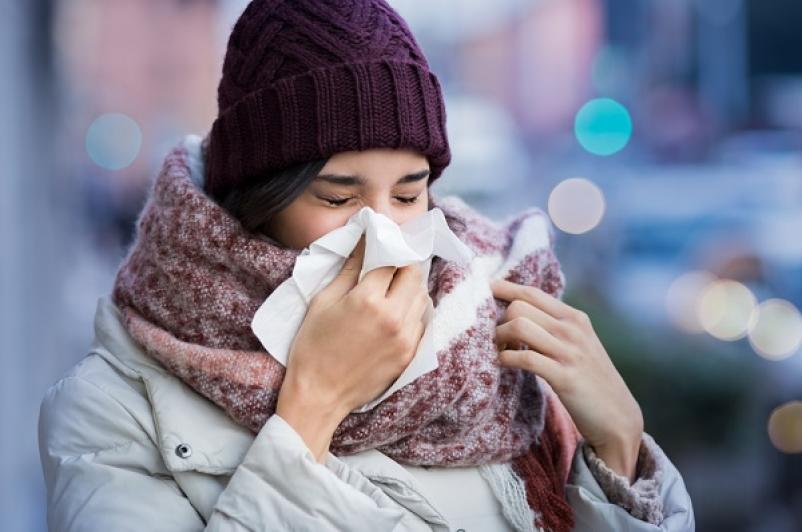

Take action to avoid getting and spreading the flu
November 30, 2022
This is flu season, and healthcare professionals are seeing a concerning uptick in cases of influenza and respiratory syncytial virus (RSV).
The single best way to reduce the risk of seasonal flu and its potentially serious complications is to get vaccinated each year.
That said, other good health habits-- like avoiding people who are sick, covering your cough and washing your hands often—have also been shown to help stop the spread of germs and prevent respiratory illnesses like flu and RSV.
Along with the Centers for Disease Control and Prevention, clinicians at UHS recommend several actions you can take to avoid, as much as possible, contracting and spreading these diseases.
Avoid close contact with others, especially people who are sick or displaying signs of respiratory illness. If you are sick, keep your distance from others to protect them from becoming ill too.
Stay home if you are sick. If possible, stay home from work, school and errands when you are sick. This will help prevent spreading your illness to others.
Cover your mouth and nose with a tissue when coughing or sneezing. It may prevent those around you from getting sick. Flu viruses spread mainly by droplets made when people with flu cough, sneeze or talk.
Avoid touching your eyes, nose or mouth. Germs can be spread when a person touches something that is contaminated with germs and then touches their eyes, nose or mouth.
Washing your hands often will help protect you from germs. If soap and water are not immediately available, use an alcohol-based hand rub.
Practice other good health habits. Clean and disinfect frequently touched surfaces at home, work or school, especially when someone is ill. Get plenty of sleep, be physically active, manage your stress, drink plenty of fluids, and eat nutritious food.
If you do get sick with flu symptoms, in most cases you should stay home and avoid contact with other people except to get medical care. If, however, you have symptoms of flu and are at increased risk for complications, are very sick or worried about your illness, contact your healthcare provider.
For more information about vaccination and prevention, click here.
Note: RSV is a common virus that affects the airway and lungs. Most people develop only mild, cold-like symptoms and get better in a few weeks. However, for some people it can cause serious illness. If you are concerned about RSV, talk with your provider right away.

